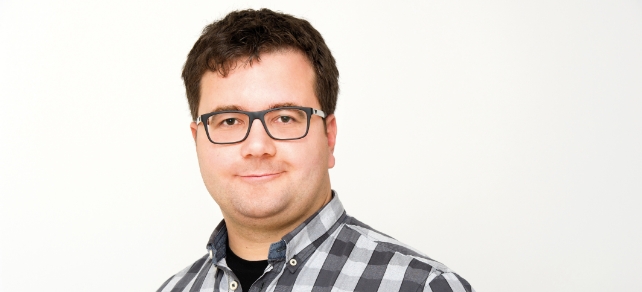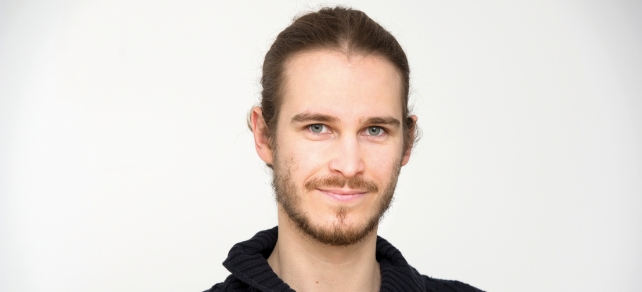Fully geared towards AI
As experts for high-end software engineering, we always have to be up to date, to drive digital transformation. Topics like data science and AI will have an even higher significance in the future. This is a good reason to acquire more insights directly from our research.
Andi, a quick question in advance: how would you explain AI to a child?
Andi: Well, that’s not so easy, but I will give it a go: with a normal computer program, you yourself know the goal and you explain the computer how to achieve it. With AI it is the other way around: you give the goal to the computer, and the computer will work out the solution to achieving the goal or the path it would take to work out the solution, itself.
What are some of the future AI trends that XITASO is currently working on and to what extent are they relevant for companies?
Andi: One of the things we are currently investigating in, is the autonomous behavior of machines. These can be cars, but also flying autonomous systems like drones, or even robots. Sophisticated sensors, new networking options and self-learning algorithms that react quickly and sensitively to their environment by processing a wide range of data, play a significant role here.
Richard: What really appeals to me is the field of generative AI systems. A form of artificial intelligence that is based on large language models and is able to generate new content on the basis of billions of texts, content sources and information. Take ChatGPT as an example of text-based AI. Or Midjourney for creative image creation. Ultimately, generative AI can automate certain services within the company and even provide information via chatbot. And so, the question arises: will software development still look the same in 10 years’ time? Certainly not. And how do you train AI systems to stop ‘hallucinating’ in order to make fact-based decisions? ChatGPT, for example, often hallucinates and therefore gives non-existent sources. We are researching how to overcome such limitations. Fascinating!
Andi: Yes, currently there are a lot of exciting topics. A practical topic certainly is the application of data science and AI in hospitals and care services. Processes can be optimized through the clever use of AI. How can I better predict uncertainties, e.g. in the case of major events like a flu epidemic? How many employees can I actually rely on? And how can they be utilized to full capacity? If we optimize planning here, we also improve patient care and working conditions for nursing staff. Alongside the exciting, ongoing research projects, we are always looking to the left and right to identify what else is relevant and what is not.
Richard: The shortage of skilled workers and how AI-supported assistance systems can help here is a very interesting topic for industrial companies. It is all about identifying problems with relatively little data and alleviating them or even preventing them from arising in the first place. An example could be semi-automated production systems. Here we use hybrid AI, meaning a combination of neural and symbolic AI architectures, learning systems and formalized knowledge. There has already been a research project for this since 2021: ADELeS. Here we cooperate with the FAU Nuremberg-Erlangen, the University of Augsburg and REHAU Industries SE.
How did the idea for the ADELeS research project actually come about?
Richard: After completion of my master‘s thesis in Machine Learning, I became the first ‘full-time researcher’ at XITASO. At that time, we had a customer who had great difficulties with commissioning their production machines. The reason was that only three employees (from a total of 1500!) were qualified to set up the machines. They of course had to travel all over the world, creating bottlenecks in commissioning. This in turn was of great interest to us: how could the parameters be set as semi-automatically as possible, to optimally support the commissioning process and the machine operators? It quickly became apparent that we were working on something big here. So, I applied for research project funding which resulted in ADELeS.
Andi: At the same time, I became responsible for the further expansion of our research sector. Richard and I then founded the new research team Entropie which, in parallel to Richard’s doctorate, has grown strongly and currently comprises ten full-time researchers.
What makes ADELeS so unique?
Richard: Above all, it’s the way in which we do things! We store the specialist knowledge of experts and use it for training Machine Learning systems. In terms of the result, it is actually like Predictive Quality, only in reverse. Not: how can I predict errors, but: how can I set up the system to correct or prevent errors in advance?
Are there examples for findings from XITASO research projects, that have already been or will soon be implemented in customer projects?
Richard: Fundamentally, we develop a methodology, not a finished product. We can draw on this pool of methods. And we then use it for our current and future customers. Correspondingly, our research has a proof-of-concept character, which can later be scaled for other customers and industries. As in the case of ADELeS: thanks to the in-depth expertise and visibility that we have built up through this research, we have also been able to start conversation with other customers on the topics of knowledge extraction and AI assistant systems.
Andi: What differentiates us as XITASO is: we are not a university, rather we are dedicated to application-oriented problems. The VALISENS project is a good example of what I mean. We are researching a sensor fusion technology, to be able to safely recognize people during autonomous driving. The findings which we have generated are then implemented also in other domains. For example, for machines in a production environment.
And one final question to finish off:
what is so exciting about your work?
Andi: Every day is exciting and different. The constant exchange with creative minds and an extensive international network enriches us with ever new ideas and perspectives. The process of transforming scientific findings into practical solutions is also particularly fascinating. For example, at XITASO we are now implementing research findings from my doctorate in robotics into market ready solutions for customers, 10 years later. Our goal as a research-based company is to make this transfer from theory to practice even faster in the future.
Richard: For me, the exciting thing in research is to recognize: what is a scientific breakthrough and what is really relevant to the market? That is where we at XITASO come into the game.
In the interview:

Dr. Andreas Angerer
Head of Research & Innovation

Dr. Richard Nordsieck
Senior Researcher
This might also interest you:
Driving technology
From groundbreaking technologies to revolutionary applications. We create sustainable growth by working in long-term partnerships to shape the technology …
Our research projects
Shortening personnel training periods with AI assistance systems. Autonomous driving made safe, even in complex situations. We conduct research on projects for the …
Construction Calculation Assistant in BRZ365
A typical bulky German designation: but what lies behind it really packs a punch! Because tenders in the construction industry become really efficient with …